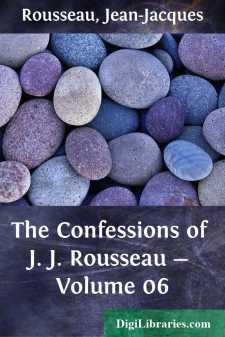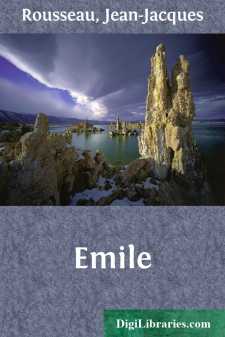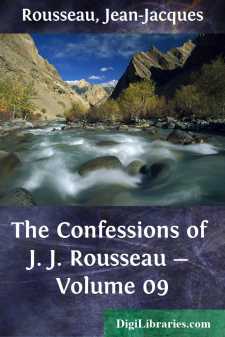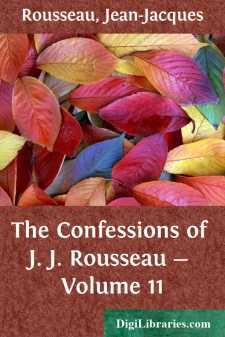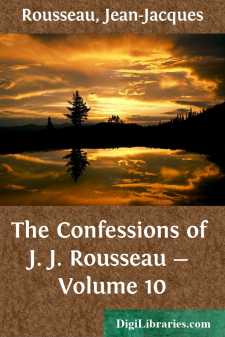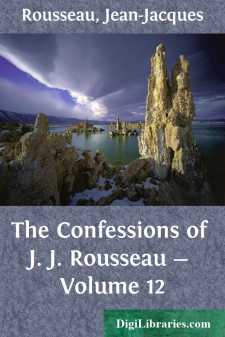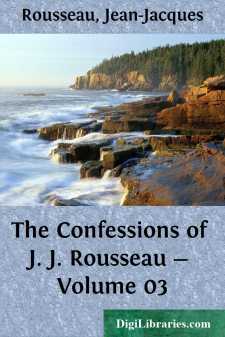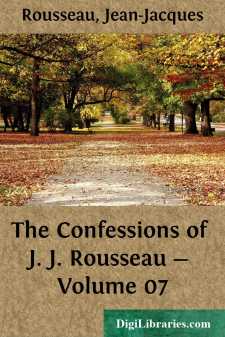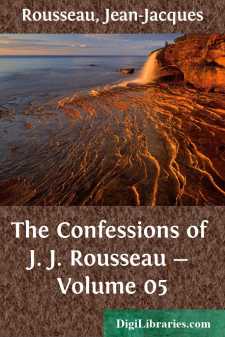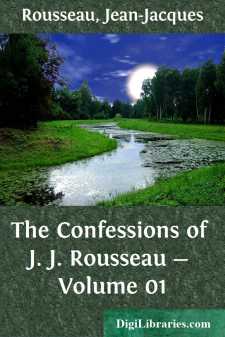Categories
- Antiques & Collectibles 13
- Architecture 36
- Art 48
- Bibles 22
- Biography & Autobiography 813
- Body, Mind & Spirit 142
- Business & Economics 28
- Children's Books 15
- Children's Fiction 12
- Computers 4
- Cooking 94
- Crafts & Hobbies 4
- Drama 346
- Education 46
- Family & Relationships 57
- Fiction 11828
- Games 19
- Gardening 17
- Health & Fitness 34
- History 1377
- House & Home 1
- Humor 147
- Juvenile Fiction 1873
- Juvenile Nonfiction 202
- Language Arts & Disciplines 88
- Law 16
- Literary Collections 686
- Literary Criticism 179
- Mathematics 13
- Medical 41
- Music 40
- Nature 179
- Non-Classifiable 1768
- Performing Arts 7
- Periodicals 1453
- Philosophy 64
- Photography 2
- Poetry 896
- Political Science 203
- Psychology 42
- Reference 154
- Religion 513
- Science 126
- Self-Help 84
- Social Science 81
- Sports & Recreation 34
- Study Aids 3
- Technology & Engineering 59
- Transportation 23
- Travel 463
- True Crime 29
The Confessions of J. J. Rousseau - Volume 06
Categories:
Description:
Excerpt
Hoc erat in votis: Modus agri non ila magnus
Hortus ubi, et leclo vicinus aqua fons;
Et paululum sylvae superhis forel.
I cannot add, 'auctius acque di melius fecere'; but no matter, the former is enough for my purpose; I had no occasion to have any property there, it was sufficient that I enjoyed it; for I have long since both said and felt, that the proprietor and possessor are two very different people, even leaving husbands and lovers out of the question.
At this moment began the short happiness of my life, those peaceful and rapid moments, which have given me a right to say, I have lived. Precious and ever—regretted moments! Ah! recommence your delightful course; pass more slowly through my memory, if possible, than you actually did in your fugitive succession. How shall I prolong, according to my inclination, this recital at once so pleasing and simple? How shall I continue to relate the same occurrences, without wearying my readers with the repetition, any more than I was satiated with the enjoyment? Again, if all this consisted of facts, actions, or words, I could somehow or other convey an idea of it; but how shall I describe what was neither said nor done, nor even thought, but enjoyed, felt, without being able to particularize any other object of my happiness than the bare idea? I rose with the sun, and was happy; I walked, and was happy; I saw Madam de Warrens, and was happy; I quitted her, and still was happy!—Whether I rambled through the woods, over the hills, or strolled along the valley; read, was idle, worked in the garden, or gathered fruits, happiness continually accompanied me; it was fixed on no particular object, it was within me, nor could I depart from it a single moment.
Nothing that passed during that charming epocha, nothing that I did, said, or thought, has escaped my memory. The time that preceded or followed it, I only recollect by intervals, unequally and confused; but here I remember all as distinctly as if it existed at this moment. Imagination, which in my youth was perpetually anticipating the future, but now takes a retrograde course, makes some amends by these charming recollections for the deprivation of hope, which I have lost forever. I no longer see anything in the future that can tempt my wishes, it is a recollection of the past alone that can flatter me, and the remembrance of the period I am now describing is so true and lively, that it sometimes makes me happy, even in spite of my misfortunes.
Of these recollections I shall relate one example, which may give some idea of their force and precision. The first day we went to sleep at Charmettes, the way being up-hill, and Madam de Warrens rather heavy, she was carried in a chair, while I followed on foot. Fearing the chairmen would be fatigued, she got out about half-way, designing to walk the rest of it. As we passed along, she saw something blue in the hedge, and said, "There's some periwinkle in flower yet!" I had never seen any before, nor did I stop to examine this: my sight is too short to distinguish plants on the ground, and I only cast a look at this as I passed: an interval of near thirty years had elapsed before I saw any more periwinkle, at least before I observed it, when being at Cressier in 1764, with my friend, M....


